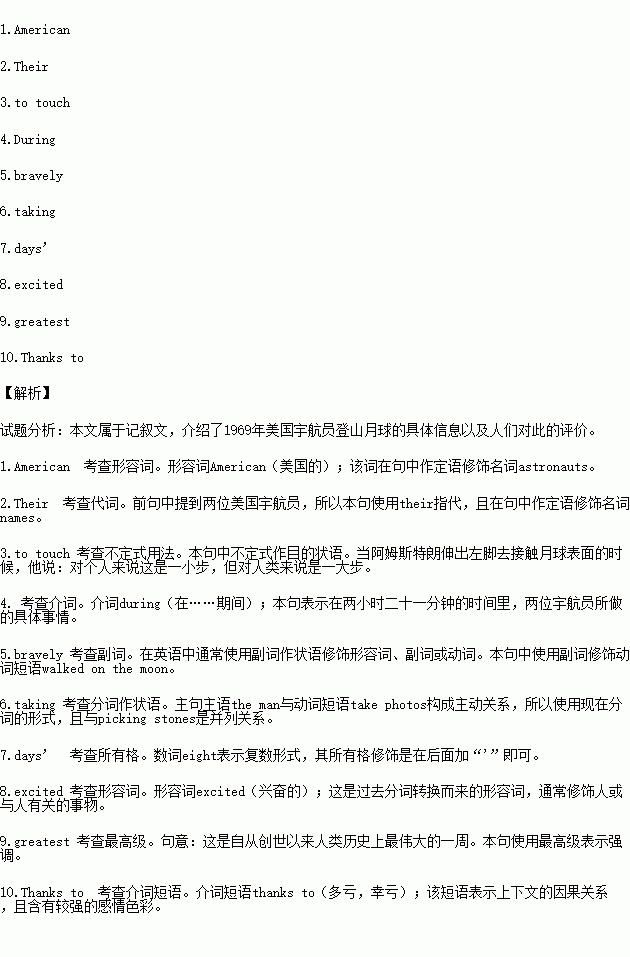题目内容
July 20, 1969 was an important day. Two 1.(美国) astronauts planted the first human footstep on the moon. 2. (他们的) names were Armstrong and Aldrin. They went into a spaceship whose name was Apollo. As Armstrong reached his left foot 3. (touch) the moon’s surface, he said, “That’s one small step for a man, but one big leap for mankind.”
4. two hours and twenty-one minutes, the man carefully at first and then 5.(勇敢), walked on the moon, 【小题6(take)photos and picking stones.
After eight 6. (day) stay in space, Apollo returned to the earth successfully. People everywhere were 7. (excite) by this moon trip. “This is the 8. (伟大) week in the history of the world since the Creation(创世),” President Nixon told the travelers. “9.(多亏,由于)what you have done, the world has never been closer together before.”

